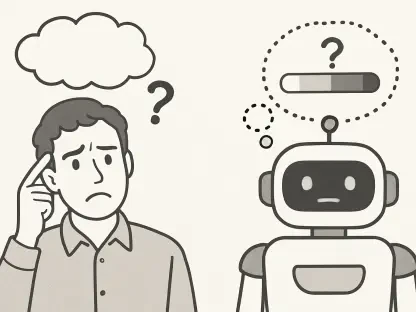In an era where artificial intelligence is reshaping every facet of society, from healthcare to education, the need to address its ethical implications has never been more urgent, and the University of Cincinnati (UC) is taking a bold step forward. UC has launched the Center for Explainable, Ethical, and Trustworthy AI (CEET), a groundbreaking initiative aimed at exploring the societal impact of AI through a humanities lens. Supported by a significant federal grant of $498,430 from the National Endowment for the Humanities, along with an additional $165,000 from UC’s College of Arts and Sciences, this center positions UC as a trailblazer in AI ethics research in Ohio and the Midwest. Under the leadership of Director Andre Curtis-Trudel, PhD, an assistant professor of philosophy, CEET seeks to bridge the gap between technical innovation and human values, ensuring that AI development aligns with ethical standards and public trust. This ambitious endeavor promises to redefine how society navigates the challenges and opportunities presented by AI technologies.
Humanities at the Heart of AI Innovation
The mission of CEET is rooted in the belief that humanities scholars are uniquely equipped to tackle the profound questions surrounding AI’s role in society. Unlike purely technical approaches, this center focuses on ethical considerations, trustworthiness, and the broader cultural implications of AI systems. As highlighted by James Mack, Dean of UC’s College of Arts and Sciences, AI impacts all of humanity, making it imperative for humanists to guide its responsible integration. The center aims to address complex issues such as bias in algorithms, privacy concerns, and the potential for AI to exacerbate social inequalities. By framing these challenges through a humanities perspective, CEET seeks to ensure that AI serves as a tool for societal good rather than harm. This approach underscores the importance of interdisciplinary collaboration, bringing together philosophers, ethicists, and technologists to create a more holistic understanding of AI’s place in the modern world.
Beyond theoretical exploration, CEET is committed to translating its findings into actionable insights that can influence AI policy and development. The center’s emphasis on explainability—ensuring that AI systems are transparent and understandable to users—sets it apart from many other initiatives in the field. This focus is crucial in an age where opaque algorithms often make decisions with far-reaching consequences, from loan approvals to criminal justice outcomes. By prioritizing trust and accountability, CEET aims to foster public confidence in AI technologies while advocating for frameworks that prevent misuse. The integration of humanities-based research into AI innovation represents a forward-thinking strategy, one that acknowledges technology’s profound impact on human lives and seeks to shape it in ways that uphold ethical principles and societal well-being.
Research and Public Engagement in Action
CEET’s structure is designed to maximize impact through two complementary units: a research arm and an engagement arm. The research unit will lead three interdisciplinary projects focused on making AI explainable, ethical, and trustworthy, while also hosting a regular speaker series and an annual conference to encourage dialogue among scholars and practitioners. These efforts will culminate in collaborative outputs such as journal articles and edited collections, contributing to the global discourse on AI ethics. The goal is to create a robust body of knowledge that not only advances academic understanding but also informs practical applications in industry and governance. By fostering such conversations, the center ensures that diverse perspectives shape the future of AI, preventing a narrow, tech-centric viewpoint from dominating the field.
Equally significant is the engagement unit, which prioritizes making AI ethics accessible to the broader community. Through partnerships with local organizations like the Cincinnati Ethics Center, CEET will develop K–12 educational materials to introduce young students to the ethical dimensions of AI. Collaborations with the Cincinnati Summer Language Institute will facilitate events on AI in education, while a partnership with the Gaskins Foundation will launch an annual AI Ethics Summer Camp for high school students. Additionally, public conversations on AI’s societal role will be hosted through ties with the Institute for Research in Sensing. These initiatives reflect a deep commitment to democratizing knowledge about AI, ensuring that ethical considerations are not confined to academic circles but are understood and valued by people of all ages and backgrounds.
Bridging Theory and Real-World Impact
A defining feature of CEET is its dedication to connecting humanities-based AI research with tangible real-world outcomes. This initiative mirrors a growing recognition that addressing AI’s challenges requires more than technical solutions—it demands a comprehensive approach that includes moral and societal dimensions. The center’s work on transparency and accountability aims to embed these values into AI systems from the ground up, preventing ethical lapses that could undermine public trust. By focusing on practical applications, CEET ensures that its research does not remain abstract but directly influences how AI is designed, deployed, and regulated. This alignment between theory and practice positions the center as a vital resource for policymakers, technologists, and community leaders alike.
The establishment of CEET also highlights UC’s role as an innovator among urban public universities, setting a precedent for how humanities can contribute meaningfully to technological progress. The substantial funding and institutional support behind the center reflect a strong commitment to tackling the multifaceted issues posed by AI. As society grapples with the rapid advancement of these technologies, the center’s emphasis on interdisciplinary collaboration offers a promising model for balancing innovation with responsibility. This initiative serves as a reminder that AI’s future must be shaped by diverse voices, ensuring that human values remain at the core of technological development.
Shaping the Ethical Future of Technology
Looking back, the launch of the Center for Explainable, Ethical, and Trustworthy AI at the University of Cincinnati stood as a pivotal moment in the intersection of humanities and technology. It marked a deliberate shift toward integrating ethical considerations into AI’s trajectory, emphasizing transparency and public trust. Moving forward, the center’s dual focus on research and community engagement provides a blueprint for other institutions to follow. Stakeholders across academia, industry, and government can draw inspiration from this model, prioritizing interdisciplinary approaches to address emerging challenges. As AI continues to evolve, initiatives like CEET must expand, fostering global partnerships and developing scalable educational programs to ensure ethical awareness keeps pace with innovation. The path ahead lies in sustained collaboration, ensuring that technology serves humanity with integrity and foresight.









